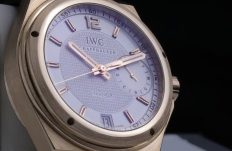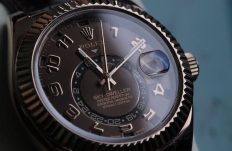The terms vintage and antique jewelry are often used interchangeably, but there are actually concrete differences between the two. While both can be significantly valuable, it’s important to understand the distinctions. Let’s cover the basics and the specifics so you know what you have:
Antique Jewelry
Put simply, a piece of antique jewelry is one that’s at least 100 years old. Antique jewelry is then broken down into various periods to further delineate it: Georgian, Victorian, Edwardian, Art Nouveau and Art Deco.
Vintage Jewelry
While antique jewelry has a very specific definition, the same cannot be said of vintage jewelry. However, most experts consider it to be anything that’s at least 30 years old. As a result, there are many pieces that could qualify as both vintage and antique. Vintage jewelry can be classified as timepieces from any of the following approximate time periods and eras. These were times that were heavily influenced by figureheads and many cultures.
- Georgian 1714-1837
- Victorian 1837-1901
- Edwardian 1901-1910
- Art Nouveau 1895-1915
- Art Deco 1915-1935
- Vintage retro (also known as Post-War) 1945-1960
The significance of age
Both vintage and antique jewelry use rare and beautiful objects and metals. It’s common for jewelry owners to wonder what makes their piece unique or rare. It’s certainly true that the age of an item is a big factor in its worth. This is because the goldsmithing techniques used in the past were often superior to the techniques used today. It’s also true that as time goes on more and more pieces are lost, which generally means that the older a piece is the more likely it is to be rare. These are some of the reasons that make them valuable.
Learn what can make a piece more valuable than another
The dynamics of a piece can have a huge impact on a piece. There are five main dynamics to consider:
Size
The majority of both antique and vintage jewelry pieces have standard size patterns. For example, measured along the longest age, the average antique brooch is around 1 ½ – 2 inches. If you have a brooch that’s significantly larger than average, it’s likely to be more valuable. This is true of virtually any particular type of vintage jewelry; if it’s larger than average it’s likely to be more expensive than average.
Material
This one can be tricky. It’s true that materials that were rarely used in antique or vintage jewelry – jade, lucite, wood, ceramic and bakelite – generally adds to the value of a piece. However, it’s also true that pieces made from materials like diamonds that were typical to the period in which they’re made can make them worth more.
Style
The specific style of a piece will have an impact on its worth. There are generally standard shapes in each period listed above, and pieces within that style will be worth more than pieces from the same period that aren’t typical styles of the period.
Designer
While not every jewelry maker or manufacturer is as collectible as another, it’s generally true that when a piece bears a designer name, hallmark stamp, or engravement, it will be worth more than a piece that doesn’t have these marks.
Shape
The standard shapes in both antique and vintage jewelry are round, oblong, square and oval. If you find a piece that doesn’t use these standard shapes it’s likely to be worth more. Examples include three dimensional shapes and sculptures like animal profiles.
Do you have questions about what your piece is worth? Call or visit Pinto Cash For Gold and Jewellery Buyers at 2570 Yonge Street, near Yonge today.








